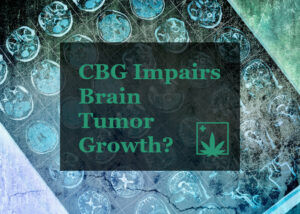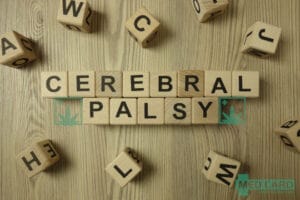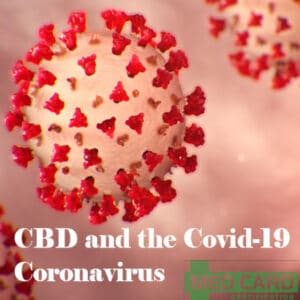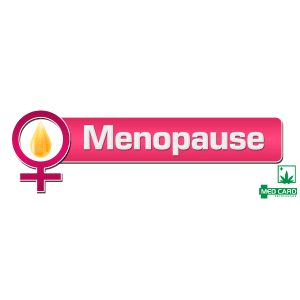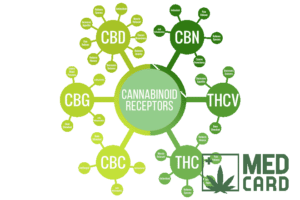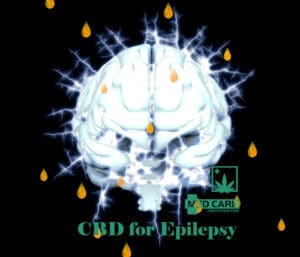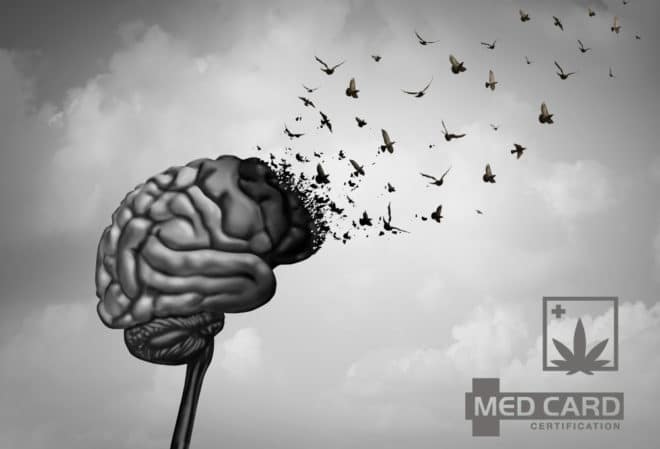
Medical Marijuana for Dementia Treatment
- Can medical marijuana help patients suffering from dementia?
- Scientific studies have been undertaken to determine the safety and efficacy of medical marijuana for treating dementia.
- Many of these studies have produced promising results.
- Causes and symptoms of dementia.
- Evidence that the active compounds found in marijuana can not only relieve the symptoms of dementia but also possibly slow its progression.
MMJ for Dementia
Healthcare providers are reporting that medical marijuana can help to not only subdue some of the behaviors that come with dementia but also to slow the progress of conditions that cause dementia.
Medical marijuana is rapidly gaining a reputation among healthcare professionals as a safe and effective treatment for a wide array of maladies. Today, many medical practitioners treating patients for dementia recognize medical marijuana’s potential in treating patients with conditions such as Alzheimer’s disease, the most common cause of dementia according to the National Institute of Aging.
Symptoms of Alzheimer’s disease in most individuals generally begin to manifest in their mid-60’s, although early-onset dementia can sometimes manifest in patients as young as 30 years old.
Shockingly, in the U.S, more than 5.3 million patients over 65 years have been afflicted with Alzheimer’s disease. And another 200,000 individuals suffer from early-onset Alzheimers. That is according to compiled data by the National Alzheimer’s Association. Another frightening statistic indicates that ten percent of people over the age of 65 will develop Alzheimer’s disease.
Two-thirds of Alzheimer’s patients are women. Also, African-American seniors are twice as vulnerable to the disease as white seniors. Elderly individuals with a Hispanic background are shown to be 1.5 times as susceptible to Alzheimer’s than Caucasians.
As lifespans increase, and more people are living far beyond 65 years of age, the instances of Alzheimer’s disease are expected to soar.
Other diseases such as Parkinson’s disease and Huntington’s disease are also sometimes responsible for the onset of dementia.
There have been many positive studies and investigations indicating the efficacy of medical marijuana in treating the ravages of dementia and neurodegenerative conditions such as Alzheimer’s that trigger this heartbreaking condition.
So What is dementia?
In 1906, Alois Alzheimer, the German psychiatrist for whom the disease was named, discovered upon autopsy that there were dramatic changes in the brain tissue of a deceased dementia patient. Examination of the patient’s brain tissue revealed tangled bundles of fibers called neurofibrillary or tau tangles, and also abnormal clumps of proteins known as amyloid plaques.
This severe damage to the brain causes a significant loss of communication between neurons. In the beginning stages of dementia, the symptoms are mild and include confusion and forgetfulness. In the final, deadly stages these conditions result in the irreversible shrinking of brain tissue.
According to Mayo Clinic’s researchers, as the condition worsens, it causes tremendous shifts in personality and makes rudimentary, day-to-day tasks impossible.
Dementia patients often develop some of the following traits:
Depression
Apathy
Social withdrawal
Mood swings
Distrust in others
Irritability and aggressiveness
Changes in sleeping habits
Wandering
Loss of inhibitions
Delusional thinking
In the final stages of the disease, patients will lose conversational skills, as well as the ability to read. Functions and skills learned in the developing years of childhood are often the last to disappear.
Difficulties In Dementia patients That often develop
For example, performing basic functions such as swallowing can become extremely difficult leading to aspiration pneumonia (fluid in the lugs). In fact, according to Dr. Marc Gordon, chief of neurology at Zucker Hillside Hospital in Queens, New York, aspiration pneumonia is responsible for the demise of two-thirds of dementia patients.
Another lurking danger is the inability to walk, which greatly increases the development of deadly blood clots.
One of the main reasons dementia patients are susceptible to infections, according to The National Institute on Aging, is a weakened immune response due to extreme weight loss.
No Definitive Cause
Research has yet to come up with a definitive cause of Alzheimer’s. Scientists now believe a combination of environmental, genetic, and lifestyle factors may be responsible for the onset of dementia. In approximately 50 percent of cases, Alzheimer’s appears to be triggered by specific genetic mutations. In these specific cases, patients invariably develop the condition.
At this time, no cure for dementia or Alzheimers exists. However, there are several options and methods for retarding the progression of damage to the brain. These protocols may offer a far better quality of life for many individuals suffering from dementia.
Using Medical marijuana for dementia treatment
Cannabis Now reports many nursing homes across the U.S. are embracing the utilization of medical cannabis to alleviate the ravages of dementia.
According to an article in alzheimers.com.uk, behavioral symptoms of dementia including aggression and agitation are being successfully managed with medical cannabis. There is also strong evidence indicating the efficacy of cannabis in targeting the underlying processes that trigger Alzheimer’s Disease.
Frontiers in Pharmacology recently published a research paper revealing CBD’s ability to relieve some of the debilitating symptoms associated with Alzheimer’s disease. CBD is the non-intoxicating analog to THC, the compound in marijuana that causes a high. THC and CBD are the two most abundant cannabinoids in medical marijuana.
In the paper, the antioxidant, neuroprotective, and anti-inflammatory properties of CBD were thoroughly researched and reviewed. The results of the study were promising, indicating the ability of cannabis to mitigate cognitive impairment associated with Alzheimer’s.
Further reports on this groundbreaking research show CBD’s capabilities in not only promoting neurogenesis or the growth and development of neurons but also in retarding further degeneration of cognitive functions.
The paper also reports on a study conducted on mice with Alzheimer’s disease. The mice in the study were administered CBD on a daily basis for three weeks. A significant reduction in neurodegeneration was indicated. Moreover, when the mice were treated with cannabis over the course of eight months, some social recognition memory was restored.
Another preliminary study took place at the Salk Institute for Biological Studies (La Jolla, California) in which researchers harvested human brain tissue with toxic proteins closely linked to Alzheimer’s disease. When the neurons were exposed to cannabinoids such as CBD and THC, the toxic proteins were eradicated, inflammation was reduced, and the neurons remained viable.
The active compounds in cannabis naturally target the human endocannabinoid system (ECS). A wide array of bodily functions are regulated by the ECS. Supplementing the body’s own endocannabinoids with those produced in cannabis has been shown to help control the activity of immune cells and prevent neuronal damage caused by an over-activated immune system and slow the progression of Alzheimer’s and other neurodegenerative disorders such as Parkinson’s and Huntington’s diseases.
For human patients, the choice of medical marijuana delivery methods is generally limited to the use of tinctures, especially in later stages of the disease. In the early stages, edible forms of marijuana have also been used.
How to get a medical marijuana card

Sign Up for Medical Cannabis Today!
For potential patients, if you’re ready, we make it easy to connect with a medical marijuana doctor nearby or online. If you are interested in getting certified, please fill out the MMJ patient registration form below and press submit to get started. See if you qualify today!

MedCard Registration Form

Sources and additional reading
- Can Marijuana Prevent Alzheimer’s?
- Cannabinoids for the Treatment of Agitation and Aggression in Alzheimer’s Disease
The therapeutic potential of the endocannabinoid system for Alzheimer’s disease
- Endocannabinoid signaling in Alzheimer’s disease
- A molecular link between the active component of marijuana and Alzheimer’s disease pathology
- Neuroprotective effect of CBD… on beta-amyloid-induced toxicity in PC12 cells
- The Potential Therapeutic Effects of THC on Alzheimer’s Disease
- The Role of Endocannabinoid Signaling in the Molecular Mechanisms of Neurodegeneration in Alzheimer’s Disease
- Cannabinoids for the treatment of dementia
- CBD in vivo blunts beta-amyloid induced neuroinflammation by suppressing IL-1beta and iNOS expression
- CBD: A promising drug for neurodegenerative disorders?
- Cannabinoid receptor 1 deficiency in a mouse model of Alzheimer’s disease leads to enhanced cognitive impairment despite of a reduction in amyloid deposition
- The role of the endocannabinoid system in Alzheimer’s disease
- The role of phytochemicals in the treatment and prevention of dementia
- Cannabidiol Promotes Amyloid Precursor Protein Ubiquitination and Reduction of Beta-Amyloid Expression in SHSY5YAPP+ Cells Through PPARγ Involvement
- Cannabinoids for treatment of Alzheimer’s disease: moving toward the clinic
- Safety and Efficacy of Medical Cannabis Oil for Behavioral and Psychological Symptoms of Dementia
- Cannabinoids for the Treatment of Agitation and Aggression in Alzheimer’s Disease
- Natural Phytochemicals in the Treatment and Prevention of Dementia: An Overview
- Delineating the Efficacy of a Cannabis-Based Medicine at Advanced Stages of Dementia in a Murine Model
- CBD Modulates the Expression of Alzheimer’s Disease-Related Genes in Mesenchymal Stem Cells
- In vivo Evidence for Therapeutic Properties of CBD for Alzheimer’s Disease
- Neurological aspects of medical use of CBD
- Cannabinoids Remove Plaque-forming Alzheimer’s Proteins From Brain Cells
- Cannabis, CBD oil and dementia
- Marijuana and Alzheimer’s Disease
- Evidence Indicates CBD is Beneficial for Alzheimer’s Disease, Review Finds – Medical Marijuana, Inc. News
- Long-term cannabidiol treatment prevents the development of social recognition memory deficits in Alzheimer’s disease transgenic mice


